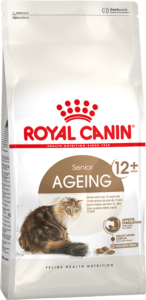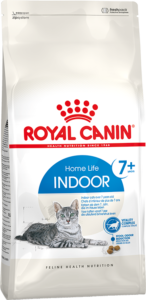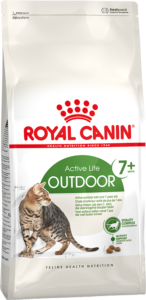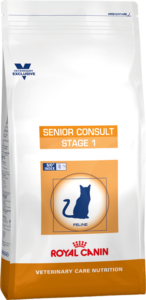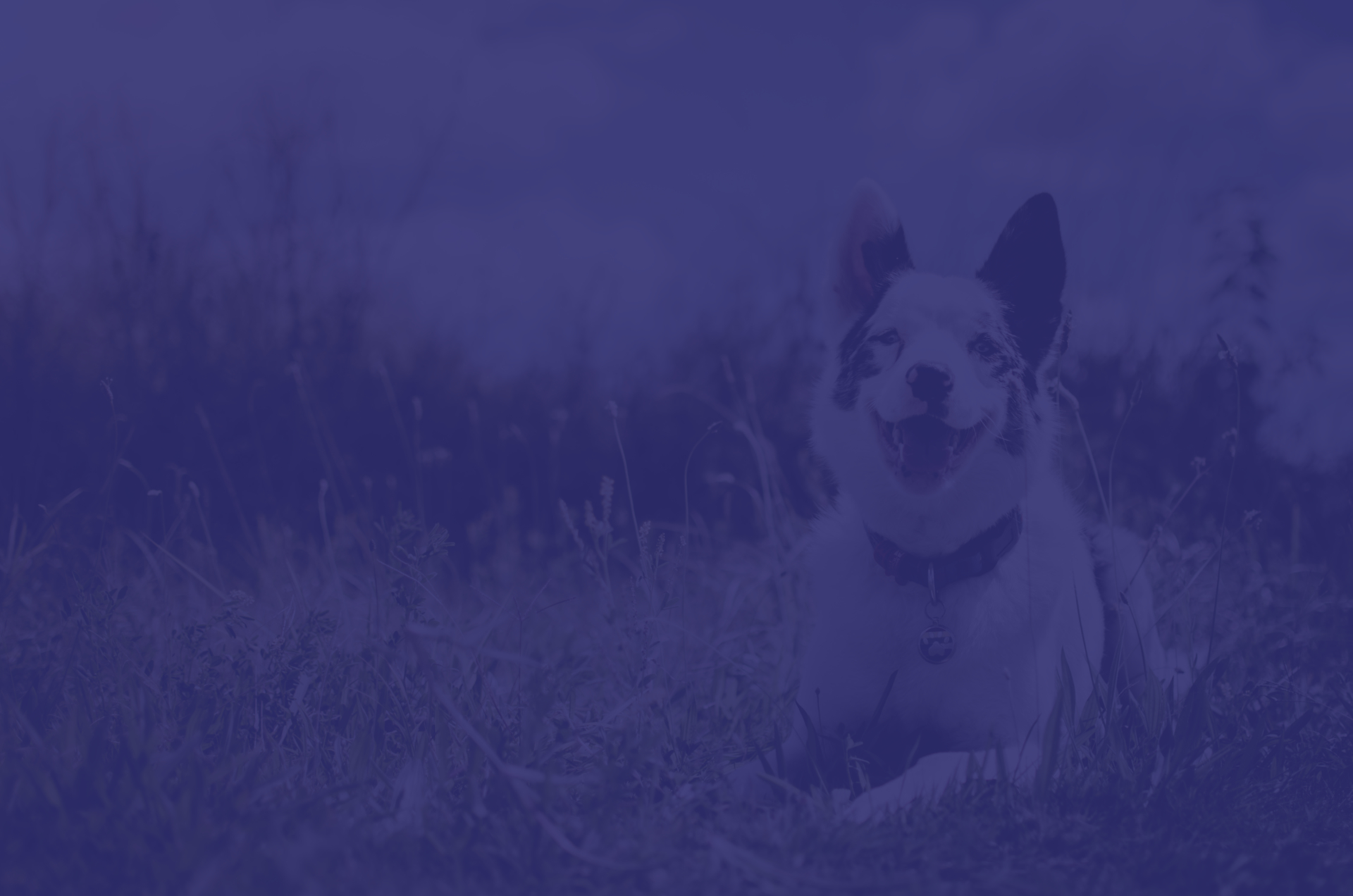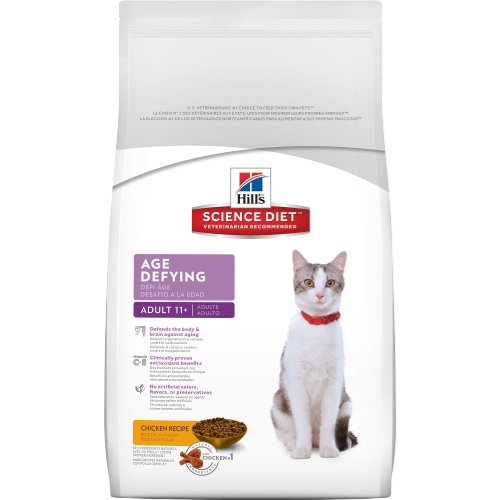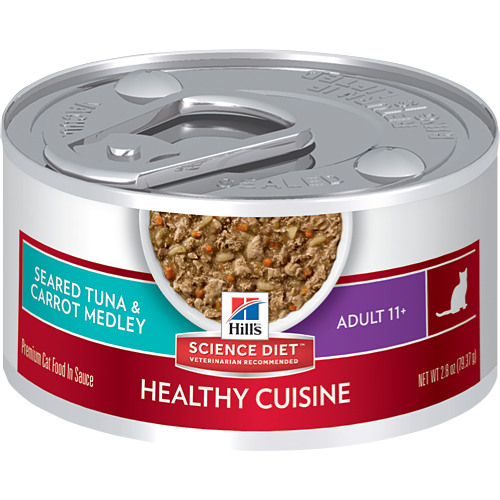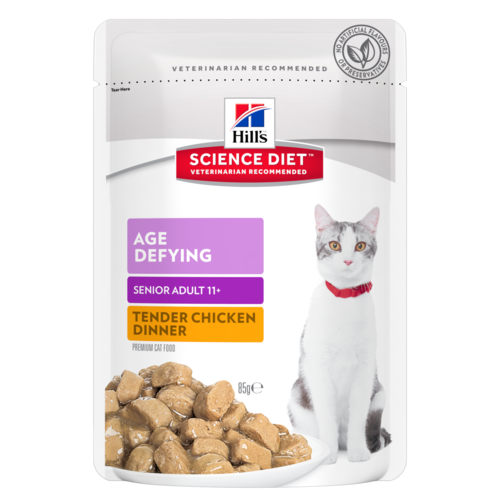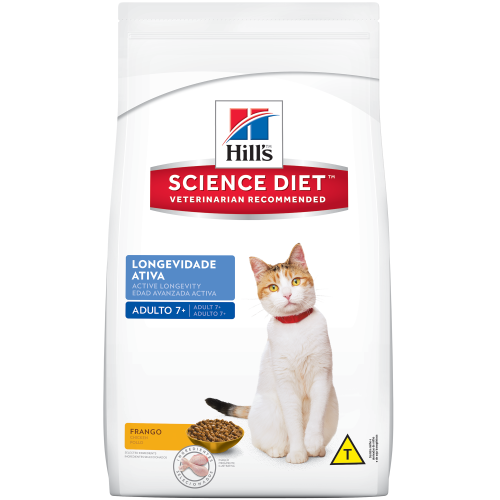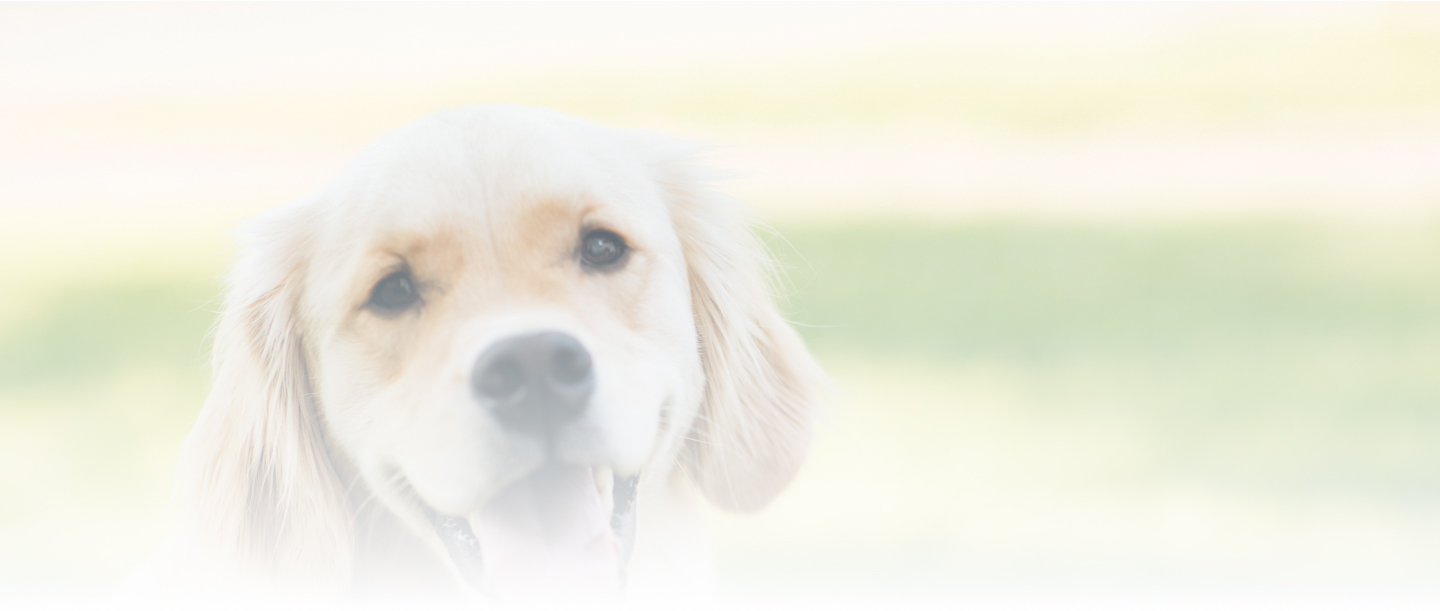Many cats begin to show physical signs of ageing between 7 and 10 years of age, and most do so by the time they are 12. Ageing often means decreased energy, difficulty walking and loss of appetite. Older cats also have a greater chance of developing various illnesses, including cardiac problems (ventricular hypertrophy), respiratory difficulties, susceptibility to infection due to a weakened immune system, frequent kidney disease, tumours and endocrine problems such as hyperthyroidism and diabetes. Obesity is also a risk factor in a large number of diseases, such as diabetes and skin problems. But older cats may also become underweight and lose muscle.
That’s why it’s important to adjust your older cat’s diet, starting at age 10. Even if you’re not seeing physical changes in your cat, there may be metabolic changes that can be addressed with food for senior cats.
Elderly cats should also be monitored by a veterinarian so any illness can be treated as soon as possible. Veterinary health checks per year is recommended throughout a cat’s life, with one every six months strongly advised for cats over 12 years old.
Sourced by Royal Canin.com
Hills Science Diet Products
Royal Canin Products
